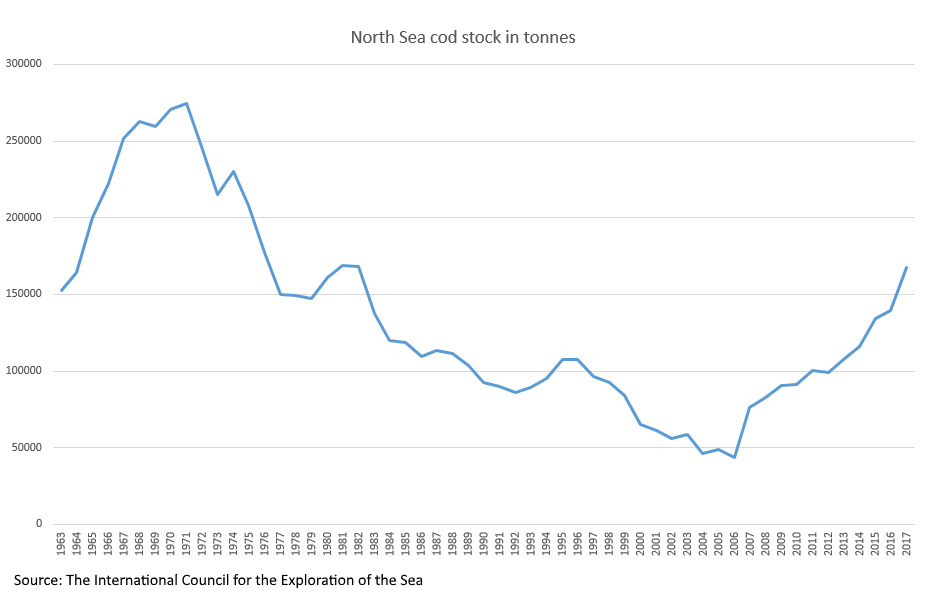Stocks fished by members of the Scottish Fisheries Sustainable Accreditation Group, are now certified by the MSC.
North Sea cod can now be sold in supermarkets and restaurants bearing the MSC ‘blue tick’ label, indicating that it is sustainable and fully traceable – subject to strict traceability requirements.
“Thanks to the enormous efforts of a coalition of fishing organisations with support from supermarkets, seafood brands and the industry body, Seafish, North Sea cod has passed an independent assessment against the MSC’s strict standard,” said MSC.
Cod stocks in the North Sea peaked at 270,000t a year in the 1970s, but fell to 44,000t in 2006. The decline sparked a ‘Cod recovery plan’ from the Scottish government and the EU Fisheries Council to replenish stocks.
‘Cod recovery plan’
The plan aimed to reduce cod catches by 25% in 2009, followed by subsequent annual reductions of 10%, to allow cod stocks to recover.
George Eustice comments on cod sustainability
Commenting on the sustainability of North Sea cod stock, Department for Environment, Food and Rural Affairs fisheries minister George Eustice said: “The UK has played a leading role in the recovery of North Sea cod stocks and it’s great news that this iconic species has been certified and recognised as sustainable seafood.
“As we prepare to leave the EU we have an opportunity to improve how we manage fish stocks in our waters and continue to champion sustainable fishing around the world.”
MSC said its certification would end consumer confusion over the sustainability of cod, allowing them to buy the fish with a “clear conscience”.
Programme director Toby Middleton said: “If you can see the MSC label on your cod, you know that it has come from a sustainable source. By choosing fish with that label, you will be helping to protect stocks long into the future.
“Thanks to a collaborative, cross-industry effort, one of our most iconic fish has been brought back from the brink. Modified fishing gear, catch controls, well-managed fishing practices – all these steps have come together to revive a species that was in severe decline.”
Industry body Seafish said the accreditation was good news for the industry and highlighted the hard work of the industry over the past 10 years.
‘Enhances the reputation of North Sea cod’
Chief executive Marcus Coleman added: “This certification not only enhances the reputation of North Sea cod, but helps widen the number of sustainable choices available to the British consumer, enabling them to eat more fish more often.”
However, conservation group the WWF (formerly known as the World Wildlife Fund) warned that cod stocks were still at their lowest levels since the 1960s.
WWF head of marine policy Lyndsey Dodds said: “If we’re to get North Sea cod back on British plates for good, it’s vital that we don’t lose focus on sustainably managing fish stocks and ensuring the protection of the marine wildlife and habitats as the UK develops its post-Brexit fisheries policy.
“Embracing new technology and installing cameras on the UK fleet would be a highly cost-effective and efficient way to help manage and monitor cod catches, as well as the range of other fish also caught by these boats."
Meanwhile, sea lice, and the effect of Brexit on international trade relationships and employment, are among the challenges that may hinder the growth of the Scottish fish and shellfish market, a report has found.


